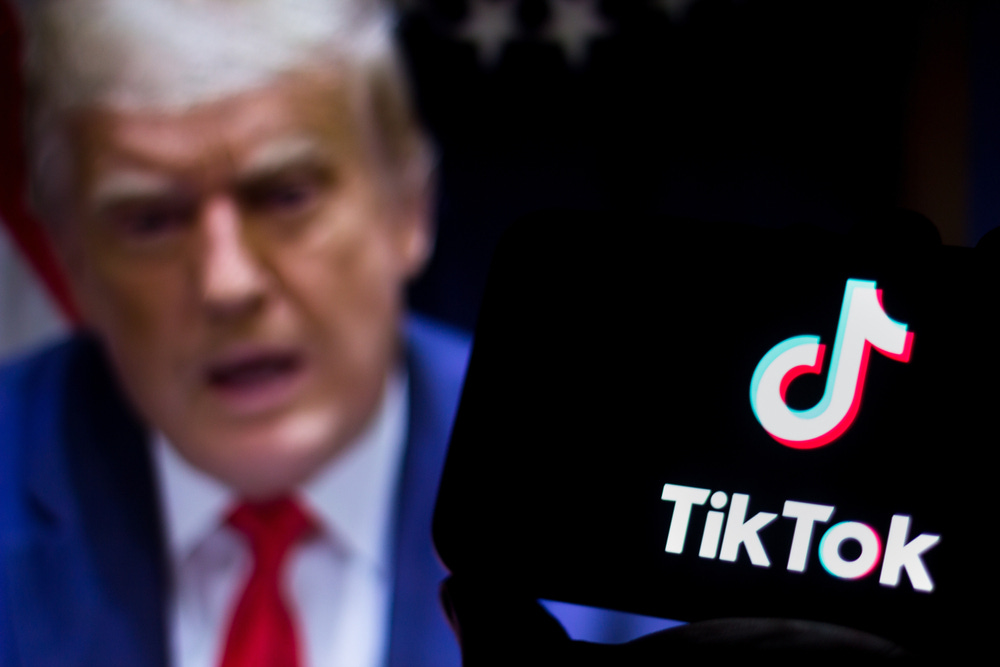Bilibili Collaboration Boosts Meituan’s Struggling Bike-Share Business
Plus: Bytedance vs. Trump, Clash of Clans scores big, and our News From China wrap-up.
The Content Commerce Insider newsletter is published twice weekly (Tuesday/Thursday) and focuses on how brands create content to drive revenue. If you have received our newsletter from a friend or colleague, we would love for you to subscribe as well.

Delivery platform Meituan (until recently known as Meituan Dianping) has, along with Alibaba-owned rival Ele.me, been one of China’s leaders in working the cross-category collaboration trend, teaming up with McDonald’s as a “couple” for the May 20 Chinese Valentine’s Day and selling kangaroo ears inspired by its logo and worn by its drivers via its own e-commerce shop.
Now, the company has turned to a new collaboration to help bolster a bike-rental business that has seen its share of ups-and-downs in recent years. Formerly known as Mobike, Meituan Bike was one of the few survivors of the bike-sharing bubble that burst by 2018, and this year it saw a dramatic uptick in usage (at least temporarily) as a result of the coronavirus outbreak, which made sharing bikes more appealing than sharing busses or subway cars.
To maintain this upward trajectory as China’s college students head back to school, Meituan Bike partnered with the youth-oriented video streaming platform Bilibili to launch limited edition “bullet chat” bikes in seven major cities, with the initial launch rolled out on 17 campuses. The bicycles feature wheel covers plastered in popular phrases used by Bilibili viewers on the platform’s signature live commenting function (known as danmu, or “bullet chats”), such as “childhood flashback” ("爷青回,” used when a scene brings back nostalgic memories), and “high energy alert” (“前方高能,” an expectation of an emotionally charged scene to come). Riders can select bikes with the phrases that best reflect their personalities or moods from stations with Bilibili’s “Little TV” mascot
The partnership is the latest in an ongoing trend that sees a broad range of consumer brands — from Alibaba and Tencent to McDonald’s to Shiseido — turning Bilibili into the platform of choice for reaching young audiences. For Meituan Bike, the move is part of a broader strategy to double down on college-student customers over the next year beyond the roughly 200 campuses where it already operates. As part of the promotion to mark the start of the academic year, Meituan Bike has been offering an introductory “one cent” weekly card for new student users.
- by Sky Canaves
Mentioned in today’s newsletter: Alibaba, Bilibili, Bytedance, Jaeger-LeCoultre, LVMH, Make Up For Ever, McDonald’s, New Balance, Shiseido, Supercell, Tencent.
For Now, Bytedance Wins and American Brands Lose in Trump’s Pyrrhic TikTok Victory

U.S. President Trump’s crusade against Bytedance-owned TikTok took another head-spinning turn this past weekend, when the previously announced deal for Oracle to become a “trusted technology partner” for TikTok’s American operations became even more complicated. According to CNBC, Bytedance’s partnership with Oracle will now also include Walmart (previously highlighted by CCI as it had partnered with Microsoft in a TikTok bid), with the three companies forming a new U.S. based company, TikTok Global.
TikTok Global will carry out a pre-IPO round of financing that will give Bytedance majority ownership in the venture and minority stakes to Oracle and Walmart, with plans for a U.S. listing within the next year and the hiring of 25,000 people in the U.S. over an “undisclosed period.” Another joint announcement from Oracle and Walmart vaguely promises “an educational initiative to develop and deliver an A.I.-driven online video curriculum.”
Beijing-based Bytedance’s projected 80% stake in the new company clearly contradicts Trump’s claim that the TikTok Global will have “nothing to do with China.” Although the White House is presenting the deal as a victory due to the shareholder scrutiny and higher transparency standards that come with being listed on an American stock exchange, it keeps TikTok’s “secret sauce” — its prized algorithms — under wraps and within Chinese borders.
Read the full article on Content Commerce Insider
Brand Film Pick: Clash of Clans Scores a Win With Chinese Audiences

The free mobile game Clash of Clans has been hugely popular around the world since it was launched in 2012 by Finnish developer Supercell (now majority-owned by Tencent), which recently scored another global hit with the release of the animated short film “Lost and Crowned,” drawing nearly 32 million views on Youtube.
The film follows an odd couple of two skeletons — one diligent, one hapless — who are summoned on a journey to guard the king’s treasures, with ensuing misadventures through the game’s world.
The reaction in China has been notable as well, with more than a million views on Bilibili within a day of its release and the film’s Weibo hashtag (#丢失的皇冠#) drawing more than 65 million views and an overwhelming positive reaction that includes praise for the endearing storyline and Hollywood-level production values.
A campaign on Weibo was launched to promote deeper interaction with fans via Q&As and giveaways of virtual and real items related to the film, including chances to win many of the 250 limited-edition, not-for-sale “movie viewing sets” comprised of highly sought-after collectibles: a miniature gold crown, retro-style toy TV set, a golden “clan theater” admission ticket, and a commemorative stamp issued by China Post.
News From China

Top e-commerce livestreamer Li Jiaqi made headlines again after officially ending a long-term contract with Chinese skincare brand Dr. Yu and signing a new deal with Make Up For Ever.
The Dr. Yu case offers a cautionary tale against overreliance on a single influencer, with the brand experiencing a major hit to sales. Dr. Yu had been featured regularly on Li’s daily livestreams and through his official social media accounts, but since the dispute started in July, the brand’s monthly sales plummeted from RMB 100 million ($14 million) to RMB 10 million ($1.4 million). According to an official statement from Dr. Yu, the partnership ended because the parties “could not agree on commercial terms,” although there was speculation from Li’s fans that he had declined to accept the brand’s proposed price increases.
Meanwhile, Li’s collaboration with the LVMH-owned Make Up For Ever was launched on September 10 with the release of the livestreamer’s personal shade of lipstick, known as the “2+7” (which sounds similar to Li’s name) selling at RMB 240 ($35). Fans who purchased the lipstick were entered in a drawing to win a makeup pouch, mist, and mini foundation for just RMB 30 ($4) more, while three fans who interacted with Make Up For Ever’s official account could each win the lipstick and other products.

One of China’s OG influencers, Papi Jiang made a name for herself back in 2015 with salty monologues that parodied trends in contemporary China, and rapidly grew into a commercial powerhouse, drawing millions in investment, endorsing brands from New Balance to Jaeger-LeCoultre, and establishing her own multi-channel network, Papitube.
Now, after stepping away for seven months following the birth of her first child, Papi Jiang is poised to become China’s biggest mom influencer. She recently announced her return to the entertainment industry with a rap video, “I’m Back From My Maternity Leave” (休完产假的我回来了), which rose to the top of Weibo’s hot search list, drawing more than a million views within the first hour of its release.
A day after her announcement, baby retailer Yeehoo named the new mother as its latest brand ambassador. That was followed by Papi Jiang’s revealing another partnership with infant formula brand Arla, which was marked by a giveaway of products and cash prizes for fans who interacted on her Weibo account.
Papi Jiang’s straight talk on parenting will be welcome to mothers who find themselves navigating changing social mores and expectations. And even before getting back to business, she aroused controversy and debate over her decision to give her son her husband’s surname, as she has long stood as a symbol of female independence and self-empowerment.
News in English
Tencent’s WeChat won a temporary injunction from an executive order that would have halted U.S. downloads of the app and some of its operations starting at midnight on Sunday, but the Trump administration plans to challenge the decision. New York Times
Short video app Kuaishou is planning a Hong Kong IPO to raise as much as $5 billion as early as January 2021, according to sources. Reuters
Kuaishou also reported hitting 500 million orders on its platform in August, making it China’s fourth largest e-commerce player after Alibaba, JD.com, and Pinduoduo. Techcrunch
Inspired by China’s Singles’ Day and 618 online retail extravaganzas, Coresight Research is partnering with e-commerce app Shopkick and fashion platform Fashwire to launch a three-day 10.10 shopping festival to get a jump start on the holiday season and create a more entertaining consumer experience. Business Insider
Alibaba’s Tmall Global held a Singles’ Day pitch fest for small- to medium-sized international brands, with nine winners selected for fast-tracked launches on the platform and special promotion for the November 11 sales event. Alizila
And for brands that can’t get on Tmall yet due to the platform’s high standards, here are three strategies that can be deployed to increase the chances of having a future application accepted. Azoya
New York Fashion Week organizer IMG partnered with Alibaba’s Tmall to stream its entire roster of shows and digital content to Chinese audiences beginning on September 21 across various Alibaba-owned platforms. WWD
Meanwhile JD.com teamed up again with the British Fashion Council to launch a digital London Fashion Week in China. JD Corporate Blog
China’s cultural authorities plan to increase regulation yet again of live performances, comedy acts, and streaming and televised content such as talk shows. Sixth Tone
Tmall is expanding into property through a partnership with E-House that will help real estate companies launch online flagship stores and utilize integrated 3D technology and livestreaming to sell homes. Pandaily
Chinese consumers have been reluctant to pay for goods and services using facial recognition, despite major investments in the technology by Ant Group’s Alipay and Tencent’s WeChat Pay. Wall Street Journal
Sales via WeChat mini programs rose 115% year-on-year between January and August, as Tencent pushes more sellers to create online stores using its Mini Shop feature. SCMP
We’ve Got China Covered


